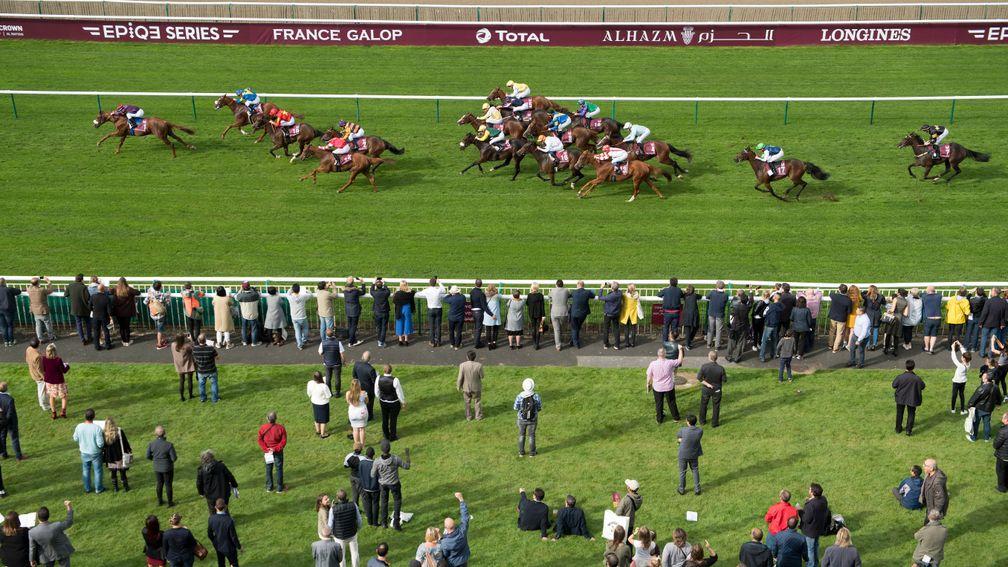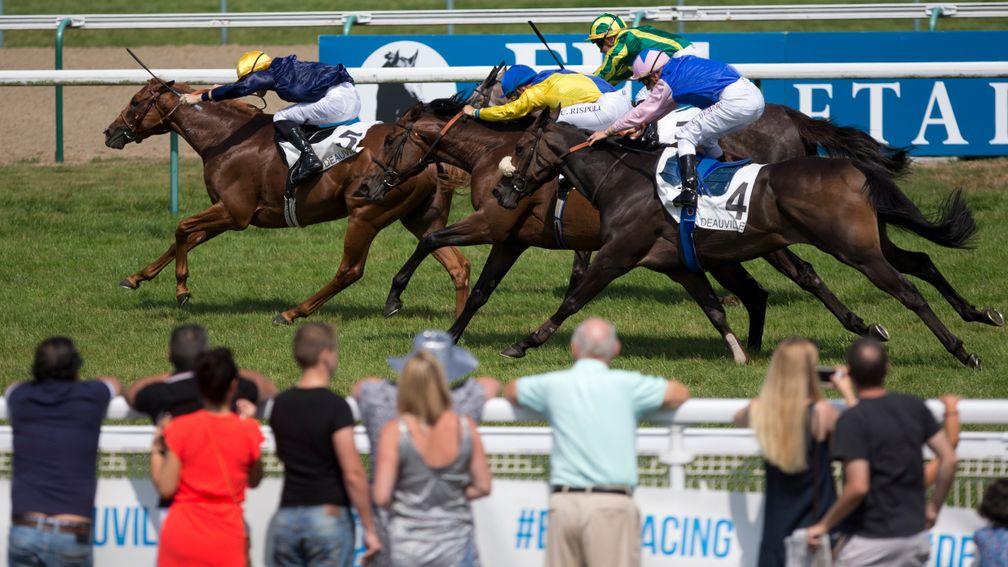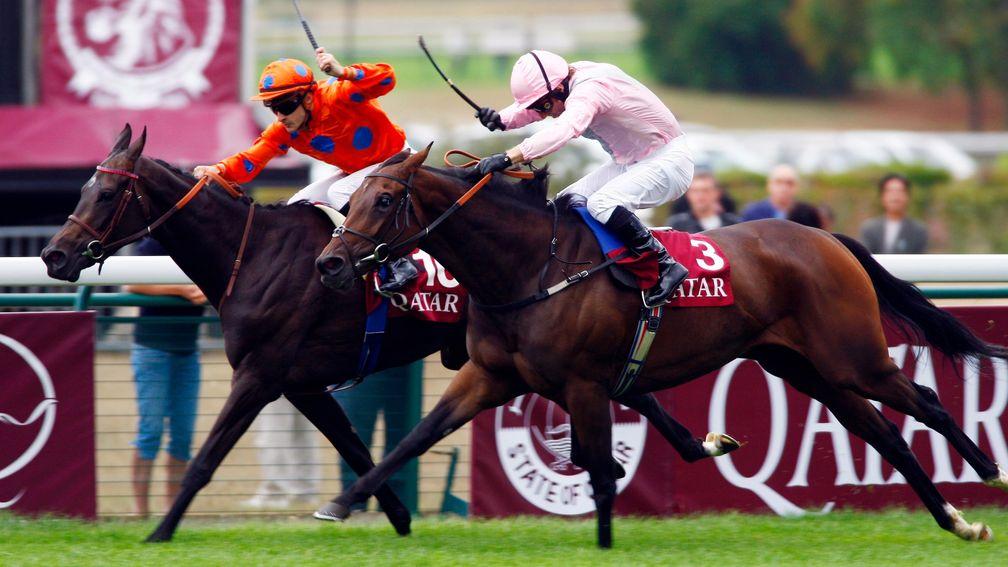Not an April fool: the interference rules in France really are changing

French racing is gearing up for what officials describe as an "evolution rather than a revolution" in stewarding with the adoption from April 1 of a new interference rule designed to comply with the International Federation of Horse Racing Authorities newly harmonised approach, which was adopted unanimously in Paris last October.
The new rule, which will form Article 166 of the French Code des Courses, brings France into line with Britain, Ireland and the whole of Asia in considering the first past the post to be the best horse in the race outside of exceptional circumstances.
Historically French stewards have demoted horses in cases where they consider interference has cost a rival a better finishing position, but under the new rule there are only two scenarios that would entail changing the finishing order: namely that the horse interfered with would have won the race, or else a manoeuvre is classed as dangerous.
This latter category was inserted into the IFHA's text at France's insistence in order to discourage a "win at all costs" mentality that the previous rules effectively deterred.
French stewards will now be asked to categorise incidents in three broad areas: those which result in a fall, those which are dangerous and those which are not dangerous.
"Qualifying a ride or a manoeuvre as dangerous should be the exception, whereas the term non-dangerous, applied to a ride or an incident, should be the principle," said Henri Pouret, France Galop's director of operations.

Should a rider be found guilty of causing the incident that leads to a fall, their mount will be disqualified, just as was the case under the previous regime.
Two categories of dangerous riding have been identified – conscious interference and incompetent riding – and if the resulting incident is deemed to have cost a rival a better placing, the stewards can demote the offender.
However, the biggest change comes in the majority of cases where the offender is not deemed to have acted dangerously.
In such circumstances, stewards will change the result only if the horse who suffers interference would have finished in front of the offender.
Punishments for jockeys found guilty of an offence that does not result in a change in the finishing order have been beefed up with greater weight still on the penalties in Group races, where the winning incentives are at their greatest.
The minimum ban for a jockey found guilty of dangerous riding in a Group race is eight days, regardless of whether the result stands, while being found guilty of causing a fall in the highest profile events carries a minimum tarif of 20 days.
Even in cases of non-intentional interference and non-dangerous riding, riders can expect a longer ban if an incident forces the stewards to change the result.
Henri Kiriel, France Galop's head of stewarding, said his experience during briefings and training sessions with his colleagues has been a positive one.

What constitutes dangerous riding?
Interference as a result of dangerous riding includes:
- trying for an insufficient gap
- attempting to force a way through
- barging an opponent in trying to improve position
- deliberately whipping an opponent's horse
Instances of non-dangerous riding entailing accidental interference:
- allowing a horse to drift without taking corrective action
- changing line without taking sufficient care not to cause interference
- allowing a horse to change line under a drive without changing whip hand
- unintentional whipping of another horse
- easing a horse prematurely before the line
Accidental interference as a result of unforeseen action on the part of a horse (veering after a single blow from the whip, hanging despite corrective efforts on the part of the jockey etc) will also be counted as non-dangerous and carries no sanction for either the horse or jockey.

Would they have kept the race? Two famous examples
Dar Re Mi was controversially disqualified after interfering with the German-trained Soberania, who passed the post fifth. Under the new rules, it is unlikely Jimmy Fortune's manouevring of Dar Re Mi would be construed as dangerous riding and so the only way the stewards could change the result is if they believed Soberania would have won without the interference.
Likely outcome: Dar Re Mi keeps the race
2009 Poule d'Essai des Pouliches
Special Duty won her second Classic in the stewards' room after first past the post Liliside was demoted to sixth after two separate sets of interference. Jean-Bernard Eyquem's movement to get out into clear space at the top of the straight would likely be counted as consciously dangerous under the new rules.
Likely outcome: Liliside disqualified
If you've enjoyed reading this article you might also like . . .
France finally comes into line with Britain and Ireland on interference
Harmonising interference rules 'an excellent outcome' says BHA
Stewards beginning to apply interference rules more sensibly
Members can read the latest exclusive interviews, news analysis and comment available from 6pm daily on racingpost.com
Published on inInternational
Last updated
- Skyscraper betting and soaring turnover: Japan's mind-boggling racing experience and the unlikely hero who sparked the boom
- Oisin Murphy a man in demand as revitalised Summer Cup card gives South African racing a platform to build on
- Ben Cecil, Grade 1-winning trainer and nephew of Sir Henry, dies aged 56
- Oisin Murphy: 'Billy Loughnane is the most talented rider I have ever seen at his age'
- Turffontein Summer Cup: Oisin Murphy up against Michael Roberts-trained ace See It Again on first ride in South Africa
- Skyscraper betting and soaring turnover: Japan's mind-boggling racing experience and the unlikely hero who sparked the boom
- Oisin Murphy a man in demand as revitalised Summer Cup card gives South African racing a platform to build on
- Ben Cecil, Grade 1-winning trainer and nephew of Sir Henry, dies aged 56
- Oisin Murphy: 'Billy Loughnane is the most talented rider I have ever seen at his age'
- Turffontein Summer Cup: Oisin Murphy up against Michael Roberts-trained ace See It Again on first ride in South Africa